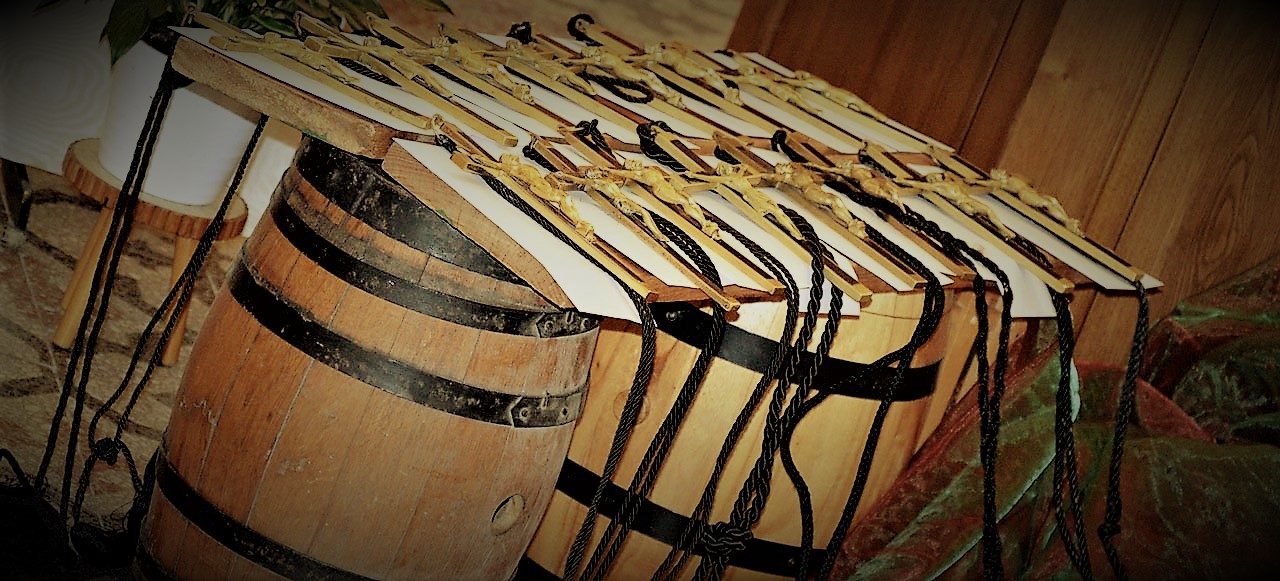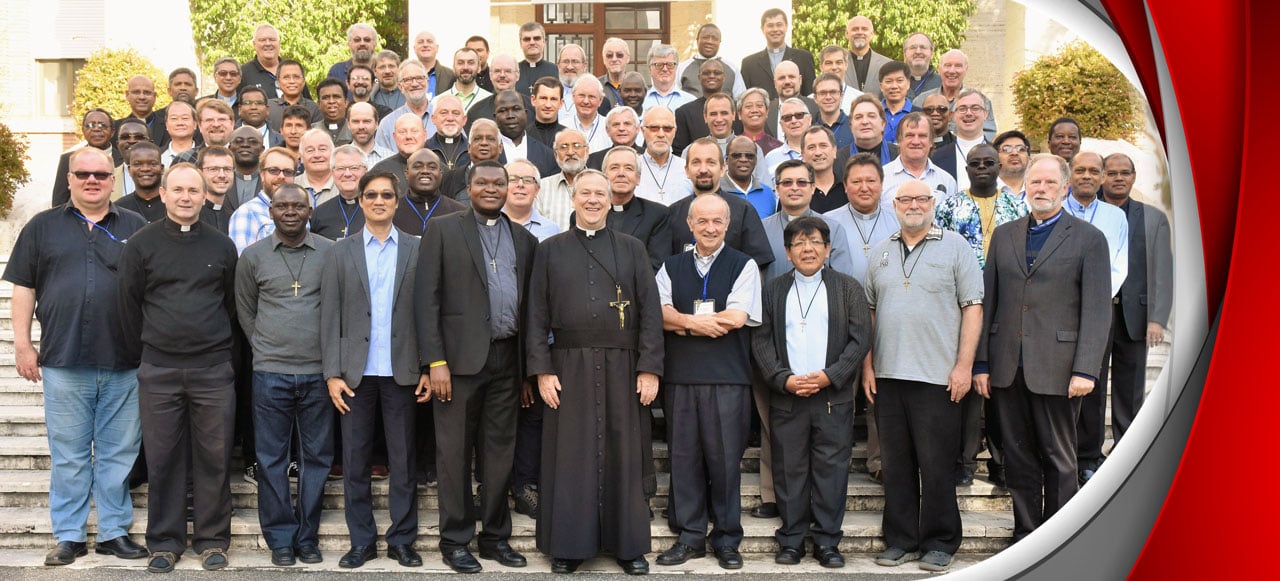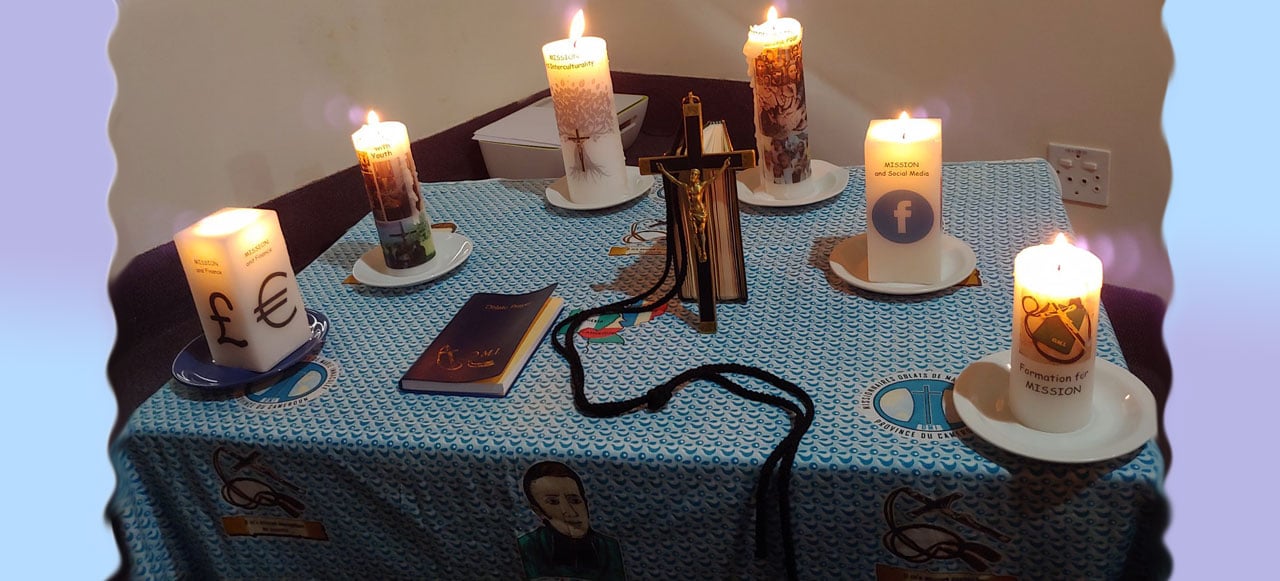Meditations to prepare for the anniversary of the first vows of November 1, 1818
Pope Francis, May 2014: “What is witness for the Christian.”
“Witnessing to Christ is the essence of the Church. Otherwise, it would end up being a sterile “university of religion,” impermeable to the action of the Holy Spirit …
“We are a people who follow God and bear witness – who want to bear witness to Jesus Christ. And this testimony sometimes succeeds in giving life.
“On the other hand, when the Church closes in on itself, it considers itself – let us say – a university of religion with very many beautiful ideas, with very many beautiful temples, with very many beautiful museums, with very many beautiful things, but it does not bear witness, it becomes sterile.”[1]
Thanks to the testimonies of his contemporaries, we diiscover who Father Tempier is, and these help us to understand better the spirit which animated him.
Let us first cede the floor to the Founder:
“I wanted, at the beginning of my letter, to tell you, my dear friend, how touched I was by the sentiments you express to me in such an edifying way, in your last letter. I recognized from its first page, the genuine religious, the upright man, the good heart, you so totally are, dear Tempier. I also thank the Good Lord, ceaselessly, for having associated me with you, and I ask him to fill you more and more with his Spirit, to our greatest mutual profit …
“No one has a greater right to my trust than you, my first companion. You have grasped, from the first day of our union, the spirit which was to animate us and which we were to communicate to others; you did not turn aside, for a single instant, from the path we had resolved to follow; everyone in the Society knows it, and they depend upon you, as they do on me. Is it any surprise, then, since we have a such a distant house, necessary because of our circumstances and its location, that you are charged with managing it?”[2]
In an outsider’s view, Timon David writes: “he was a venerable man, concealing in somewhat abrupt manners, one of the best hearts that one could meet […] it is impossible to say how many communities in Marseilles owe to him their foundation or establishment. He was a father to everyone […] It was easy to get along with such a man.”[3]
Father Fabre would describe Father Tempier with these words, in the obituary, “Joy he shared in common, pain he reserved for himself … under an austere, cold, almost unfeeling exterior, the warm southern nature of Father Tempier concealed a heart of gold, capable of all the heroics of charity … Never has a man insisted so much on respect for confidences and discretion, in the exercise of the responsibilities with which he was entrusted … yes, he was pious, that solid, deep piety which takes hold of the soul and puts it in immediate contact with God. He had a taste for holy things. The hours of prayer did not seem too long to him. Father Tempier’s life can be summed up in one word: ‘dedication, the most absolute dedication’. Constantly effacing himself, always forgetting himself, and thus assuming the highest place, in the full view of everyone …”[4]
Let us end with this extract from the homily given by Bishop Chalandon, on April 7, 1864, in the Church of the Mission in Aix, on the occasion of the 50 years of the priesthood of Fr. Tempier, “As long as the Society of the Oblates of Mary Immaculate is directed by the spirit of faith, devotion and zeal which animated your first Father and which always animated, in the green fruitfulness of his old age, the one whom he could call his son no less than his brother, his helper, and his friend – as long as, walking in the footsteps of the Mazenods and the Tempiers, you can say: ‘Societas nostra cum patre et filio ejus’ (may our Society always be with God the Father and with his Son), the Church on earth and the Church in heaven will have cause to rejoice.”[5]
————————————-
At the start of this 9th meditation, we quoted an excerpt from Pope Francis’ homily, at St. Martha, on May 6, 2014. He ended with a few questions, questions he directs to us today:
“How is my witness? Am I a Christian witness to Jesus or am I just a member of this sect? Am I fruitful because I bear witness, or do I remain sterile because I am not able to let the Holy Spirit lead me forward in my Christian vocation?”[6].
You may also write a testimonial about a colleague, to bring to light some aspect of his life.
We hope that these few meditations give you the curiosity to reread the life of Father Tempier.
Further, we recommend the two books on Father Tempier, written by Yvon Beaudoin in 1987[7], the obituary composed by Father Fabre in 1870[8], the conference, in Aix-en-Provence of Father Michel Courvoisier, on February 17, 2016[9] or the article on Father Tempier in the historical dictionary.[10]
[1] Extrait de l’homélie du pape François à Sainte-Marthe, 6 mai 2014.
[2] Lettre du P. Mazenod au P. Tempier du 15 août 1822.
[3] Témoignage de l’abbé Timon David sur Tempier, collection Ecrits oblats II,1 Rome 1987, pp. 61-62.
[4] Notices nécrologiques II, du P. Tempier.
[5] Homélie de l’Archevêque d’Aix, le 7 avril 1864, collection Ecrits oblats II,1 Rome 1987, pp. 228-230.
[6] Extrait de l’homélie du pape François à Sainte-Marthe, 6 mai 2014
[7] François de Paule Henry Tempier, collection Ecrits oblats II, 1 et 2 Rome, 1987.
[8] Notices Nécrologiques II, circulaire N° 49, pp. 81-118.
[9] « Je ne peux pas y arriver seul ! », Aix-en-Provence 2016, pp. 44-48.
[10] Dictionnaire historique des Missionnaires Oblats de Marie Immaculée, Vol I, Rome 2004, pp. 704-710.


